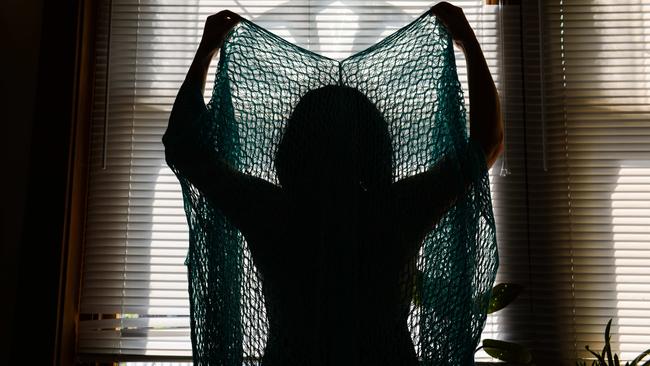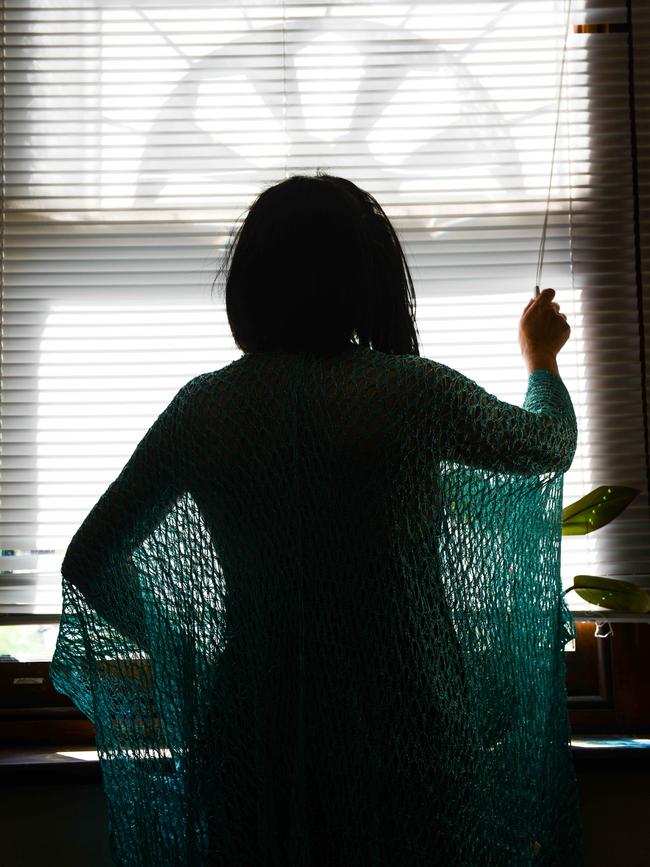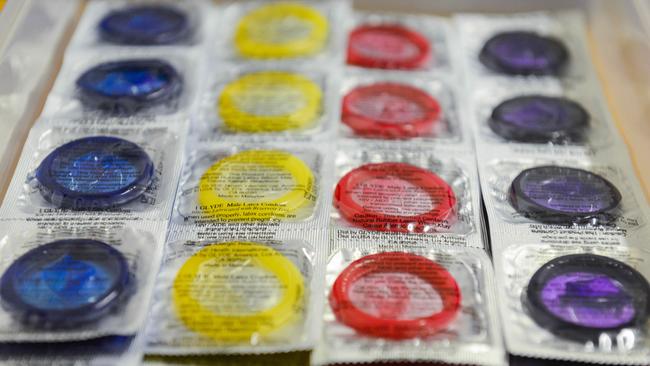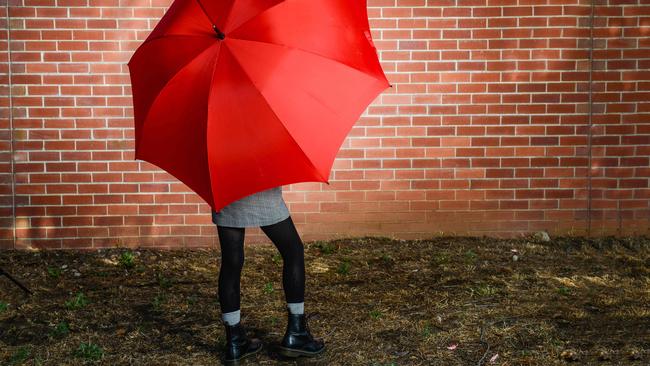‘How did a nice girl like you end up in a place like this?’ Inside the lives of SA’s sex workers
When Cassie drops her three kids off to school, no other parent could imagine where she goes next.
Lifestyle
Don't miss out on the headlines from Lifestyle. Followed categories will be added to My News.
Like many working mums, Cassie* waves goodbye to her three children at school drop off then gets ready for her work day.
Only from there, for the 31-year-old, things are a little different.
Cassie is a sex worker.
She heads to a backstreet in Adelaide and when a car approaches, she will negotiate a price and a service.
“Often the work will take place in cars and in backstreets,” she says.
“It’s really super discreet and then, when I’m done, I’ll put my money in my pocket and go home.”
What Cassie does for a living is illegal in South Australia.
Usually working under the cover of darkness, namely to hide from police, there are days when her hours are more conventional, but she never really knows how long her shift will last.
“I might work four hours a night, anywhere up to five hours, depending on how busy it is,” she says.

The locations where she works are, by and large, kept secret.
There have long been well-known street worker hot spots in South Australia, but Cassie isn’t saying; she doesn’t want to get busted, nor does she want to put out an alert for any potential competition.
“There’s some traditional areas in South Australia where street-based sex work takes place,” she says.
Cassie says she started out, “pure and simple” because she needed the money to feed her children and keep a roof over their heads.
“I needed to make money to live and I knew sex work was an option … so I decided to give it a go,” she says.

She’s been working on the streets for the past five years, having started in a brothel (also still illegal) where the managers received a cut of her earnings and controlled the hours she worked.
“I was talking to a friend and she was doing street based sex work and it was working out really well for her,” Cassie says.
“She had a lot of control over the bookings, over the service she was providing and the times that she worked.”
Cassie asked her friend to “come out one night” and shadow her. “The rest is history,” she says, adding it gives her “complete agency and total flexibility over the times” she works.
And, a lot of the time, her life seems very mundane and, dare we say it, normal.
“I’m the primary caregiver, (so I do) school pick-up and school drop off and all of those things that go along with being a parent,” she says.
The job also gives her time to pursue her passions, like knitting and poetry.
Cassie is acutely aware of the stigma and the dangers associated with sex work, but says it makes her feel “independent and powerful”.
“I’ll get up in the morning and I’ll make a decision about what my work day is going to look like,” she says.
And like fellow sex workers Molly and Sam, she is a little tired of being judged.
All three spoke to SA Weekend to shine a light on a line of work they believe should be decriminalised, as it has been in almost every other state and territory.

MOLLY’S STORY
Molly says sex work saved her life. She was a 24-year-old student who was struggling financially and battling poor mental health when she started online sex work and, shortly after, in-person work.
“In the years I’ve been a sex worker … I’ve slowly pulled myself out of poverty,” says the now 34-year-old.
“After having started sex work and really getting into it, you get that sort of rhythm of having that money coming in; it really changed my life in terms of my mental health.”
Now, she says, she can live. If the fridge breaks, or a vet bill comes up, she is no longer in crisis. It also allows her to work other jobs.
“There’s been periods where I’ve been doing full-time sex work and other times where I’ve sort of juggled it with another job but it’s always been there,” she says.
“It’s probably always going to be there no matter where I go, it’s going to be something that I’m always doing in some capacity because of just how well it fits with my lifestyle.”

SAM’S STORY
Sam* always wanted to be a sex worker and as soon as she turned 18 she became one.
“I always knew about sex work, I knew that it existed and I was interested in it,” she says.
She started off on phone sex lines but, once landlines gave way to mobiles, moved into in-person sex work, advertising online to clients and servicing them in her home, hotel rooms or at private residences.
Her mum, she says, was “shocked at first” but is her No. 1 supporter, and has helped Sam in the fight for the decriminalisation of sex work in South Australia, protesting and writing letters to politicians.

A gender diverse worker, Sam identifies as one gender in her personal life, but advertises as another when working.
“I advertise using an identity that I don’t identify as in my personal life and I think a lot of gender diverse sex workers can relate to that experience,” she says.
“Because the gender diverse sex worker community is quite small, I feel that I’m more visible in my ads in that way.
Because if you’re looking for a trans sex worker, the list of ads is much smaller than if you’re looking for a female sex worker.”
*Names have been changed



